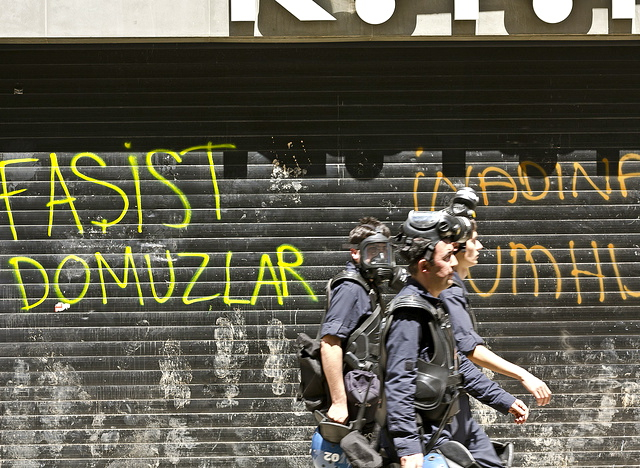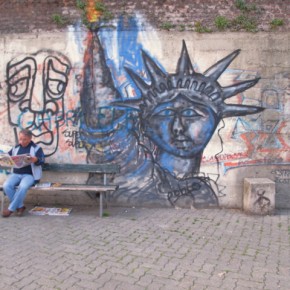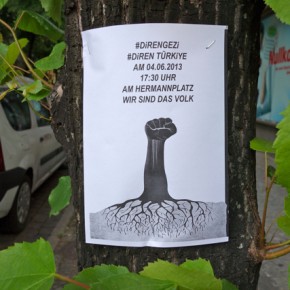Instead of covering the Gezi Park protests, CNN Turki chose to show a documentary on penguins. So Tweeted Aaron Stein, from Istanbul, last week. It would have been one thing if it was just another Turkish broadcaster. Noted for their self-censorship, domestic news agencies had imposed a blackout on the uprising, one of the largest in the country’s history.
However, for an international broadcaster to do the same, spoke reams of the crisis afflicting news media in Turkey. As many broadasters have owners who are sympathetic to the country’s Prime Minister, Recep Tayyip Erdogan, their editorial policies have often downplayed his Justice and Development Party’s increasingly reactionary politics. Though required to comply with local press standards, as an American-owned broadcaster, CNN is nonetheless obliged to speak a little more truth to power.
Indeed, the Gezi protests are important, and Turks, above all people, deserve to have them reported fairly. This isn’t an Egyptian-style conflict about autocracy, although it is galvanizing dissent against the AKP’s growing majoritarianism. It is also not a cultural conflict between secularism and Islamism, although protesters have complained about recent regulations of contraception, and on alcohol sales. This appears to be a crisis of Turkish neoliberalism, with elite indifference taking center stage.
The events leading up to Occupy Gezi actually began in March 2013, when the Emek Theater on Istiklal Street in Istanbul (the site of many current marches) was demolished. A historic venue in its own right (it opened in 1924,) Emek was an independent cinema, and played host to the annual Istanbul Film Festival.
Emek’s demolition, it turned out, was part of a larger development plan. Kamer Construction, a local contractor with close ties to the AKP, (and already well-known for building in protected areas,) announced the construction of yet another shopping mall in the city. Neighborhood residents feared a major redevelopment of the area without historical sensitivity, or concern for their needs, and demonstrated. The government forcibly put the protests down.
Growing resistance led to the formation of Occupy Gezi, which staged a sit-in on May 28th against workers who arrived to clear one of the few green spaces left in Istanbul. Its purpose? To renovate a historic military building, while building accompanying condominiums and (yet another) shopping mall. Remaining true to form, Turkish police responded with tremendous violence, inspiring this wider mobilization.

Occupy Gezi has deeper roots, though, then just the park it takes its name from. Though centered on events taking place on Istiklal Street and Taksim Square, it is also about the construction of a third bridge across the Bosphorus Strait, which will uproot huge numbers of trees, and is controversially named for Yavuz Sultan Selim, who led massacres of Alevis within and outside the Ottoman Empire. What ties all these events together is a lack of interest in the social consequences of urban redevelopment and city planning – consequences which Turks increasingly feel imposed on them, by the government, and its business partners.
Neoliberal policies of urban gentrification hinge on exactly this kind of political scenario, whereby entire city areas are transformed without consideration for their residents. The AKP is not alone in helping sponsor the Turkish version of this process. It’s a worldwide game, where business interests routinely invest in the construction of tacky luxury areas, quite typically, over the heads of lower income neighborhood residents, who are left to fend for themselves, without adequate political representation or advocacy, and quite frequently, homes. Prime Minister Erdogan’s statement at the Selim Bridge groundbreaking ceremony reflects this indifference: “…it does not matter what you do. We made a decision. We will follow through with that decision.”
As the Gezi protests evidence, this attitude has far-reaching consequences: from wider national issues such as potential intervention in the Syrian civil war, to pastry houses and independent cinemas. As the Turkish protests continue to evolve, they’re absorbing the intricacies of domestic politics. The narrative that ties together demonstrators’ diverse grievances is that the Erdogan government is increasingly undemocratic. The Islamist neoliberalism that forms the AKP’s main platform is now becoming more aggressively stated, with Erdogan arrogantly implying that a simple parliamentary majority gives his party a mandate to impose itself on the entirety of Turkey’s population.
Various activists in Turkey have begun referring to the events of this week as a turning point for the country, and the beginning of necessary dissent against the Prime Minister’s policies. Might Occupy Gezi become a pro-democracy movement? It remains to be seen, although it is likely to affect next year’s elections, in which Erdogan is likely to stand for reelection.
What does seem clear is that the last week’s protests are playing out like a nightmare for businesses and city planners, who expect their projects to occur with state backing and security, and are unhappy that residents refuse to either swallow their objections, or shuffle away. The resistance against this development is part of a larger backlash against the neoliberal reorganization of the Turkish metropolis, which is predicated on a privatized service economy that limits citizen participation in matters concerning the city’s livability. Not just for the wealthy, but the lower and the middle classes that have historically constituted Istanbul’s majority population.
Events in Taksim remind us that Erdogan’s approach is a tremendous resource for social angst, the sort that ignites broad-based backlashes that are largely class-based, and potentially revolutionary in their reach. Globally, as cities continue to swell and place new demands on the state for housing and public services, their residents will be less likely to accept comments such those made by the Prime Minister at Selim Bridge. The more likely scenario is that they begin to demand a perfectly reasonable alternative: that more participatory forms of governance be implemented to meet legitimate demands for democratic control over urban policy.
Photographs courtesy of Eser Karadag and Joel Schalit. Published under a Creative Commons license.





